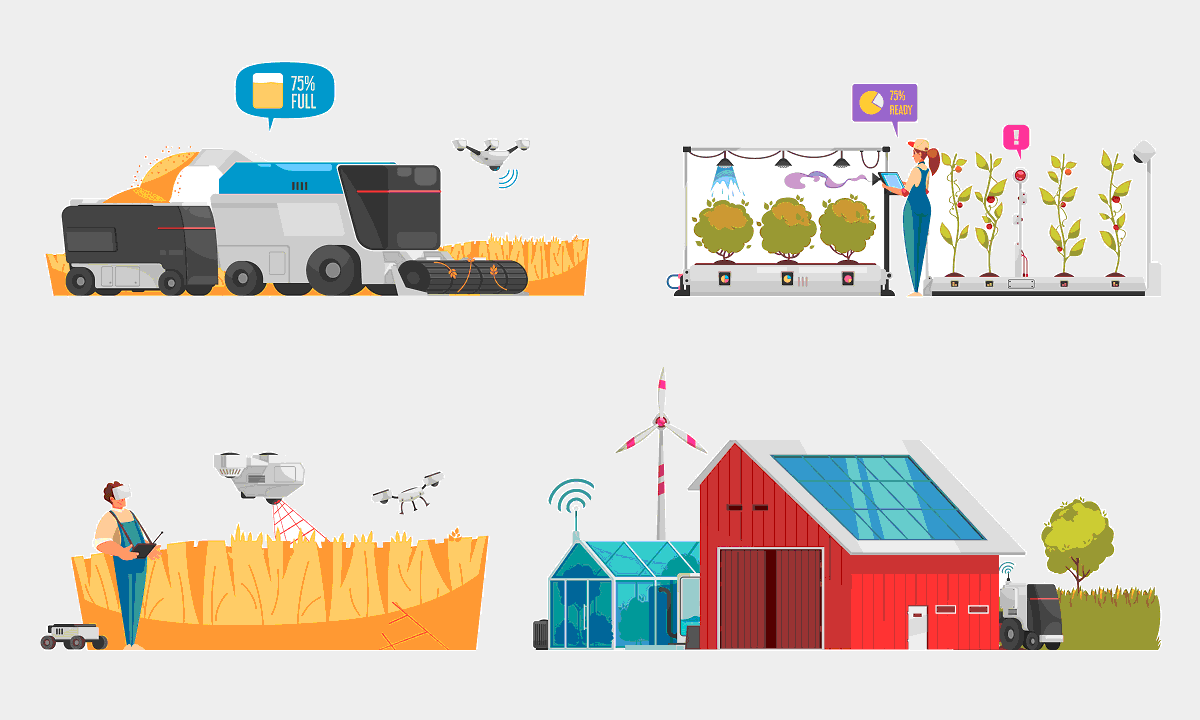
Biotechnology is an area of science that involves the use of biological systems, organisms, or processes to create new products and technologies. In recent years, biotechnology has made significant advancements in the agriculture and food processing industry, offering new and innovative solutions to some of the biggest challenges faced by farmers and food producers. In this article, we will explore the latest advancements, applications, and challenges of biotechnology in agriculture and food processing.
Definition and Overview of Biotechnology in Agriculture and Food Processing
Biotechnology in agriculture refers to the application of biotechnology techniques to the improvement of crops, livestock, and other agricultural products. This can involve genetic engineering to create crops that are more resistant to pests and diseases, more productive, or have improved nutritional qualities. Biotechnology in food processing refers to the use of biotechnology techniques to create new food products or improve existing ones, such as the use of bioprocessing to produce plant-based proteins.
Advancements in Biotechnology and its Impact on the Agriculture and Food Processing Industry
Biotechnology has had a profound impact on the agriculture and food processing industry in recent years. One of the most significant advancements has been the development of genetically modified crops, which have improved crop yields, increased resistance to pests and diseases, and reduced the need for chemical inputs. Precision agriculture, another area of biotechnology in agriculture, has also had a significant impact, allowing farmers to use data and technology to make more informed decisions about crop management and to improve efficiency and productivity.
In food processing, biotechnology has opened up new opportunities for the creation of high-quality food ingredients through fermentation processes. This has led to the development of plant-based proteins and other ingredients that are contributing to a more sustainable food production system. Additionally, biotechnology has also made it possible to produce healthier food products that are more affordable and accessible to consumers.
Applications of Biotechnology in Agriculture and Food Processing
Genetic Engineering
Genetic engineering is the process of modifying the DNA of an organism to produce a desired trait. In agriculture, genetic engineering is used to develop crops that are more resistant to pests, diseases, and environmental stress. For example, scientists have used genetic engineering to create crops that are drought-resistant, improving crop yields in water-scarce regions.
Precision Agriculture
Precision agriculture is a modern farming practice that uses advanced technologies to optimize crop production and reduce waste. Biotechnology plays a critical role in precision agriculture, with tools such as sensors, drones, and machine learning algorithms being used to collect data and make informed decisions. For example, precision agriculture is being used to reduce the use of fertilizer and other inputs, helping to improve the efficiency and sustainability of food production.
Food Bioprocessing
Food bioprocessing is the use of biotechnology to produce high-quality food ingredients, such as plant-based protein, through fermentation processes. This is an exciting and rapidly growing area of biotechnology that is helping to create a more sustainable food production system. For example, food bioprocessing is being used to produce plant-based protein, which is a growing trend in the food industry and is helping to reduce the demand for animal-based protein.
Challenges Faced by the Biotechnology in Agriculture and Food Processing Industry
Despite the many advantages of biotechnology in agriculture and food processing, there are also significant challenges that must be addressed. These include:
Regulatory Hurdles
The regulatory environment for biotechnology in agriculture and food processing is complex and constantly changing. This can make it difficult for companies to bring new products to market, leading to delays and increased costs.
Consumer Perception
Consumer perception is another major challenge facing the biotechnology industry. There is still a significant amount of public skepticism about the safety of genetically modified crops and food ingredients. This can make it difficult for companies to build consumer trust and acceptance.
Ethical Concerns
Finally, there are also ethical concerns surrounding the use of biotechnology in agriculture and food processing. For example, some people are concerned about the impact of biotechnology on the environment, including the potential for cross-pollination between genetically modified crops and wild relatives. Additionally, there are concerns about the impact of biotechnology on the world's food supply and the potential for monopolies to form in the seed and food production industries. To address these concerns, it is important for policymakers and regulators to have a clear understanding of the potential risks and benefits of biotechnology and to work with industry and consumer groups to establish clear guidelines for the safe and responsible use of these technologies.
Conclusion
In conclusion, biotechnology has made tremendous advancements in the agriculture and food processing industry in recent years. From genetic engineering and precision agriculture to food bioprocessing, biotechnology has opened up new opportunities for more sustainable and efficient food production. However, there are also challenges that must be addressed, including regulatory hurdles, consumer perception, and ethical concerns. By working together, the industry, regulators, and consumers can ensure that biotechnology continues to have a positive impact on agriculture and food processing for years to come.
Overall, biotechnology has the potential to revolutionize the agriculture and food processing industry, offering new and innovative solutions to the challenges faced by farmers and food producers. It is an exciting time for biotechnology in agriculture and food processing, and as the industry continues to grow, it will be important for researchers, policymakers, and consumers to stay informed about the latest advancements and developments in the field.
Agricultural Science


